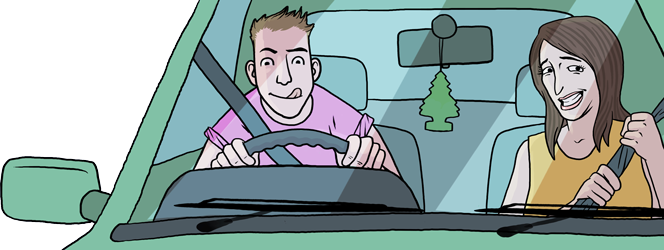
How do YOU drive?
You’re probably a safe driver - after all, you've had decades of experience. But a few bad habits can creep in and become second nature, and they’re very easy to pass on to your children.
Be honest: do you ever use your phone when you’re sat in traffic? Do you race to beat the lights? Steer with one hand?
The impact you have on your child’s driving future is huge. It’s not just about helping with driving practice, paying for lessons and then handing over the keys - although you’re a saint for doing all that. Your child starts learning to drive long before they’re 17, and what they learn is down to you.
A recent survey by Goodyear found that parents spend an average of 3 hours and 34 minutes in the car with their children each week. That's a whole lot of time you're showing your child how to drive.
Lead by example
Studies have shown that even very young children are aware of and affected by adult behaviour. Did you see that video of the baby who watched a CPR class? He crawled over to the dummy and mimicked what he’d seen.
That’s how learning to drive begins: it’s a bit of a scary time, so what does a young driver have to rely on? Their parents’ example. Consciously or not, a learner repeats their parents' driving habits - habits the parents may not even know they have.
It’s fairly fundamental that you don’t swear in front of your young children because you don’t want them to repeat bad words. Driving is exactly the same: if you don’t want your child to become a dangerous or aggressive driver, you need to avoid showing them these behaviours in your own driving.
Tips for the lead-up to driving lessons:
-
Take a good look at how you drive
Are there any habits you wouldn’t want your child to repeat when they start learning to drive? Get rid of them now! As driving lessons loom, they will start watching you even closer than they have for the last 16 years.
-
If you can, try driving commentary
When you’re in the car together, explain what you’re doing, like giving way and stopping or slowing at lights and crossings. This will give them some good grounding for lessons and their theory test preparation.
-
Don’t be tempted to start ‘teaching’
Driving instructors are trained to teach people to drive, so leave it up to them. Just keep up an ongoing discussion about driving, without making your own method seem like ‘the right way’.









